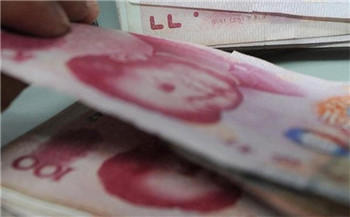(单词翻译:单击)

The offshore renminbi jumped the most in its five-year history yesterday, prompting fresh speculation of state intervention by the central bank to underpin the Chinese currency.
离岸人民币汇率昨日出现其五年历史上最大涨幅,引发了对中国央行(PBoC)为支撑人民币汇率而采取官方干预措施的新一轮猜测。
Renminbi traded in Hong Kong — referred to as CNH — rose more than 1 per cent against the US dollar in just a few minutes late in the Asian day. Though small compared with other international currencies, the move was the sharpest increase since the launch of offshore renminbi trading in 2010.
在亚洲交易日尾盘期间,在香港交易的人民币(CNH)兑美元汇率在短短几分钟内上升逾1%。虽然与其他国际货币相比这一变动幅度不大,但它是自2010年推出离岸人民币交易以来的最大涨幅。
The speed and magnitude of the rise led some to point the finger at China’s central bank, which has been intervening aggressively over the past month to prop up the currency.
此次汇率上涨速度之快和幅度之大,令部分人将原因归结到中国央行身上。在过去一个月里,中国央行一直在大举干预汇市以支撑人民币汇率。
“We can’t know for sure but it looks like Chinese banks are buying renminbi in the offshore market,” said a trader at a midsize Chinese bank in Shanghai. “It’s been happening recently but it looks like the amount is much bigger today.”
上海一家中等规模中资银行的一名交易员表示:“我们无法确切知道,但看起来好像中资银行正在离岸市场买入人民币。这种情况最近一直在发生,不过今天的买入规模似乎要大得多。”
Large buying by China’s state-owned banks is often seen as an indication of government intervention, with commercial lenders carrying out orders on behalf of the central bank. Beijing may have chosen to act after the gap between the onshore and offshore exchange rate hit its widest since 2011 this week.
中国国有银行的大规模买入行为,往往被视为政府干预的迹象,由商业银行代表中国央行下单。就在本周,在岸和离岸人民币汇率出现2011年以来的最大差距,这可能促使中国政府选择采取行动。
However, others believe that China’s drumbeat of positive messages on its currency, and some potential moves to ease the two-way flow of corporate cash between onshore and offshore markets, may have contributed to a stronger renminbi in Hong Kong. Depreciation pressures have been building since Beijing opted to cut the value of its currency against the dollar by about 3 per cent in mid-August, a move that sent shockwaves through global markets.
不过,其他人则认为,中国在人民币汇率问题上传递出的积极信号,以及可能会放宽企业资金在在岸和离岸市场间双向流动的举措,可能对人民币在香港的走强有所贡献。8月中旬,中国政府曾选择将人民币兑美元汇率下调约3%,此举对全球市场产生了巨大冲击。自那以来,人民币贬值压力一直在升高。
China is also suffering from record capital outflows as the economy slows and as the prospect of higher interest rates in the US draws money elsewhere. In August, China’s foreign exchange reserves dropped by $94bn — the most on record — despite a trade surplus for the month of $60bn.
由于中国经济放缓以及美国加息前景吸引资金流向别处,中国也在遭遇创纪录的资金外流。今年8月,尽管该月中国贸易顺差达600亿美元,但中国外汇储备减少了940亿美元——是有记录以来的最大跌幅。
Capital outflows, a slowing economy, and a series of rate cuts have led many strategists to predict a weaker renminbi in the months ahead.
资金外流、不断放缓的经济、以及一系列降息举措,令许多策略师预计今后几个月人民币将走弱。
However, Beijing has denied any intention to devalue the renminbi in a bid to boost export competitiveness. “China will never resort to a currency war,” Chinese Premier Li Keqiang said this week at a World Economic Forum meeting in Dalian.
不过,中国政府已否认抱有任何为提升出口竞争力而令人民币贬值的意图。本周,在大连举行的世界经济论坛(World Economic Forum)会议上,中国总理李克强曾表示:“中国绝不主张打‘货币战’。”


